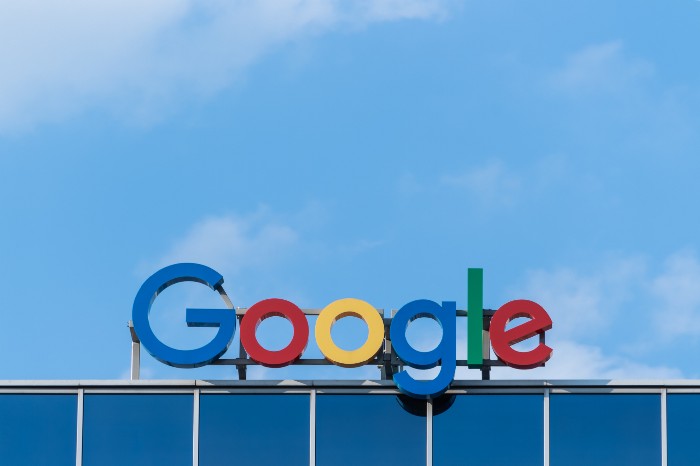Research in development: Google looks to the future... and SEO?

Last September, Google celebrated its first 20 years.
For the occasion, Ben Gomes, the head of the Search area, published an interesting article on the future of the search engine. The article sparked considerable interest, was picked up by various international outlets and blogs, and rightfully became a trending topic at the Bar AND EMILI.
Here is an excerpt, freely translated from the original:
When Google started 20 years ago, our mission was to organize the world's information and make it universally accessible and useful. [...] Providing greater access to information is at the heart of our work today just as it was when we started. And while almost everything has changed in terms of technology and the information available to us, the fundamental principles of search have remained the same. Ben Gomes — Improving Search for the next 20 years
Fundamentally, Gomes argues, Google's main goal has remained unchanged over time: to provide users with useful information and make it accessible, anywhere and at any time.
 “Google sign” by Paweł Czerwiński on Unsplash
“Google sign” by Paweł Czerwiński on Unsplash
Information has always been a human need, a constant necessity that relates to some variables. The first variable is technology, changing and continuously evolving. Just think of the continuous progress in the field of artificial intelligence or the computing power of today's smartphones. The second variable is people, particularly their habits and needs. These two variables inevitably intertwine with each other, just consider the increasing use of voice assistants (Siri, Google Now, Cortana, etc.) in our daily lives or the way people stay updated (less and less through newspapers and more and more through social networks).
Technology changes, people change, Google changes
Considering the ongoing technological and social changes, Ben Gomes highlights some key elements that could characterize Google Search in the coming years.
1. From answers to journeys
The shift from answers to journeys
Ben Gomes — Improving Search for the next 20 years
From answers to journeys — Credits: Euan Carmichael on Unsplash
Searching for information often translates into a process, a series of activities carried out in multiple sessions or even days. Google intends to embrace this trend through new (or improved) Search features designed for informational queries. We have, for example, the dynamic organization and representation of search results, because each informational journey is different, even when dealing with similar themes. Or the activity cards, a way to make one's search history more useful and relevant, presenting the history more conspicuously and at the right time.
For more on this topic, here's an article by Nick Fox
2. Information Without Queries
The shift from queries to providing a queryless way to get to information
Ben Gomes — Improving Search for the next 20 years
 Information without queries — Credits: freestocks.org on Unsplash
Information without queries — Credits: freestocks.org on Unsplash
Relevant information for the user even when there isn't an explicit search. Discover, the evolution of Google Feed, should be understood in this context: a stream of multimedia content and topics relevant to the individual user, tailored to their specific interests. An interesting novelty is the role attributed to evergreen content, content that, although dated, is unknown to the individual user and therefore relevant to them, attractive regardless of their publication date.
For more on this topic, there's the article by Karen Corby
3. Increasingly visual content
The shift from text to a more visual way of finding information
Ben Gomes — Improving Search for the next 20 years

It's not even new anymore: users prefer visual content such as images and videos over text. In addition to this, there are countless cases where users perform searches to obtain visual content and not lengthy academic articles.
In short, content is king, but the crown takes different forms.
For this reason, Google's SERPs are evolving. The space that in the past was occupied only by simple links (with the classic Title, URL, and Description) today contains videos from YouTube, maps, photos, various types of images, and even stories! At the same time, we are witnessing the enhancement of Google Images, with advanced functionalities and an ever-increasing use of artificial intelligence.
Here's the article by Kathy Edwards
AND EMILI specializes in development and strategic consulting for digital channels.
Does all this change the rules of SEO?
 Does SEO need to change? — Credits: rawpixel on Unsplash
Does SEO need to change? — Credits: rawpixel on Unsplash
The answer, in my opinion, is no. Let's consider for a moment the points indicated by Ben Gomes and cross-reference them with the following elements.
- Evolution of the SERPs, which today include, in addition to simple links, content taken from:
- Knowledge Graph
- Google Maps
- Google Images
- YouTube
- Structured data - Increased use of voice search, with the consequent growth of queries in interrogative form and somehow more human or discursive.
- Beneficial purpose, a concept that emerged strongly in the last update of the guidelines for Google's quality raters (July 2018), according to which determining the ranking of a web page for a query considering:
- Expertise, Authoritativeness, Trustworthiness (E-A-T)
- Quality and quantity of the main content
- Information about the site and the person responsible for the main content
- Reputation of the site and the person responsible for the main content
In this perspective, I believe that to keep up with the changes in the SERPs and new search trends, it is sufficient to follow the guidelines explicitly provided by Google in recent years (for example, in its Webmaster Guidelines), continuing to design content and digital experiences with the needs of the users in mind.
Technical SEO
From a technical standpoint, it's obvious that there are a series of actions to consider and standards that are good to adhere to. The point is not to do it just to please Google, but because certain standards benefit users in their search for information and at the same time allow search engines to find and serve that information. Some examples?
- Use of markup for structured data;
- Creation of sitemap.xml;
- Optimization of the robots.txt file;
- Insertion of alternative texts for images (alt tags);
- Internal linking within pages.
Contenuti
Regarding content, some reflections emerge.
For example, it often happens that we need to balance a satisfying navigation experience with the need to produce rich, substantial, well-documented content. How to do this? One way could be the use of internal menus on pages to allow quick access to specific content blocks.
Or, how to intercept voice searches? Perhaps by including likely questions in the headings of paragraphs, or leveraging the FAQ sections of websites.
E-A-T
And what about authoritativeness? This I believe is the most difficult part, but it must be understood that producing quality content requires adequate expertise and not only. In this sense, the direction taken by Google with the medic update is, I believe, positive and encouraging.
I close my reflections with a question that naturally arises when thinking about the controversies that have affected the sector after the aforementioned update: can an article about headache medications written by an excellent copywriter on the blog of an e-commerce site be more valuable than the same article, perhaps with some formal errors, written by a luminary in medicine?
 E-A-T — Credits: rawpixel on Unsplash
E-A-T — Credits: rawpixel on Unsplash
AND EMILI specializes in development and strategic consulting for digital channels.
This page has been translated using automated translation tools and artificial intelligence technologies. We strive to ensure that the content is accessible in multiple languages, but please be aware that the translation may not be perfect. If you have any doubts or need clarifications, please feel free to contact us.



